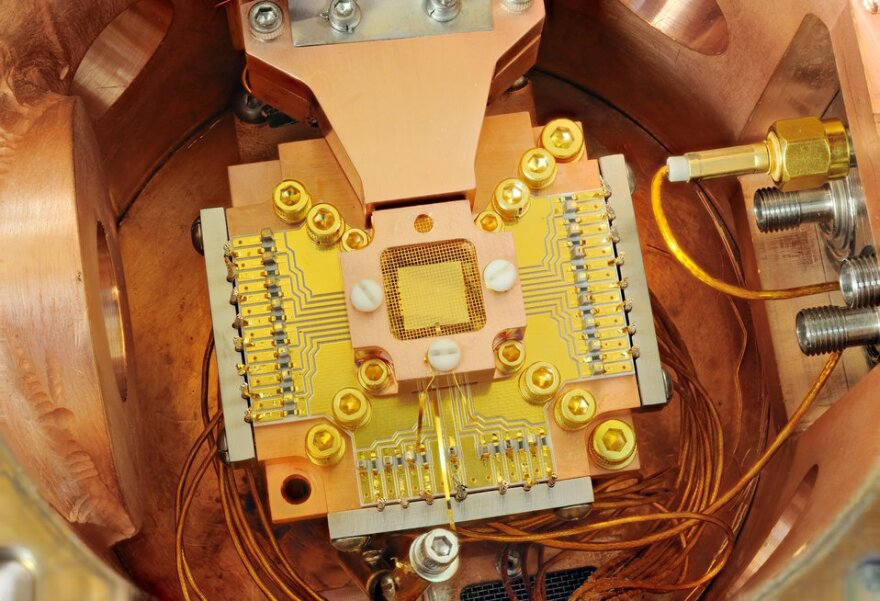Google announced this week it has achieved a historic technology breakthrough on the Central Coast, by creating “quantum supremacy.” Working with a team from the University of California at Santa Barbara, the company says it has solved a next-to-impossible mathematical problem in record time, and it could change human understanding of what computers can do.
Quantum mechanics is the branch of science that studies the chaotic behavior of the particles that make up the universe. The “quantum supremacy” is the result of two decades of work by UCSB researchers.
Ben Chiaro is a grad student who worked with the team on the project.
“The quantum computer has performed calculations that any known classical computer on planet Earth cannot,” Chiaro said.
In under three minutes, the quantum computer solved a problem that would take a supercomputer 10,000 years to solve.
Classical computers represent data in zeros and ones.
“In a quantum computer we use quantum bits,” Chiaro said, "Where a bit of information can be a one or a zero, but it can also use the properties of quantum mechanics to be a one and zero at the same time.”
Quantum bits are called qubits. The more qubits that are used, the more powerful the quantum processor.
So what does it all mean? Since the 1980s, scientists have postulated that quantum mechanics is the future of computing. Google CEO Sundar Pichai compared the “quantum supremacy” to the first flight of the Wright brothers. It was short, but it led to modern air travel.
According to Chiaro, “quantum supremacy” is an important scientific milestone, but more work is needed to bring the technology into daily life.
"Modeling quantum systems is likely to be an early application of the quantum computer," he said. "But this can be extended to engineering better batteries and pharmaceuticals. One day, quantum computers may even contribute to artificial intelligence and logistics optimization."
Not everyone is excited about Google’s news. Teams around the world have been trying to accomplish this feat for years. IBM has questioned the results and also says it can perform the same computation on a classical computer, in two and a half days.






